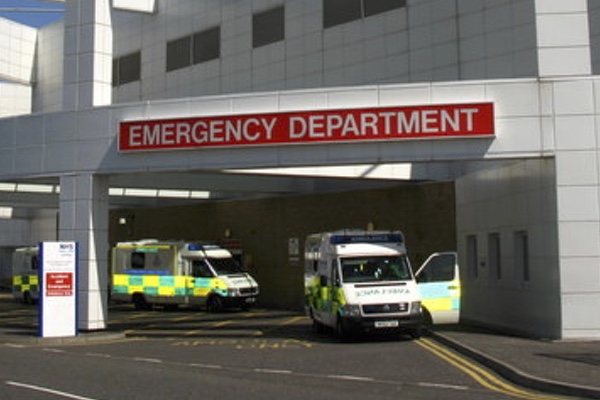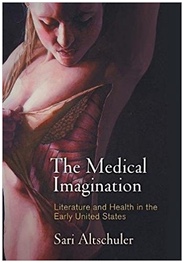Why Medicine Needs the Humanities (And No, It’s Not Just About Empathy)

Photo by By Lisa Jarvis, CC BY-SA 2.0
Medicine is missing something fundamental today, doctors and patients agree. While we know more about the human body than ever before, treatment and research are increasingly driven by cost and efficiency and less by the time-honored tradition of medical art. The most popular way of addressing such issues has been to teach courses in the medical humanities—almost every elite medical school has them. One of the field’s most enduring and central claims is that exposing medical students to the arts and humanities can develop much needed empathy for health professionals. In a medical world increasingly guided by checklists, financial exigency, and empirical science, but not the art of medicine, medical humanities programs can seem like a lifesaver.
 And yet, on closer inspection, medical humanities is a poorly definedfield—admirable in impulse but often confused about follow through. While the term humanitiesin this context suggests a set of intellectual commitments; in the medical humanities it refers instead to a vaguely articulated interest in humanity. Humanities students read poems to sharpen creative analytical skills, while in the medical humanities students read poetry to explore their personal feelings and to develop emotional intelligence.
And yet, on closer inspection, medical humanities is a poorly definedfield—admirable in impulse but often confused about follow through. While the term humanitiesin this context suggests a set of intellectual commitments; in the medical humanities it refers instead to a vaguely articulated interest in humanity. Humanities students read poems to sharpen creative analytical skills, while in the medical humanities students read poetry to explore their personal feelings and to develop emotional intelligence.
Humanists have been complicit in this confusion—even welcomed it. Faced with the so-called “crisis in the humanities”and seeking ways to make the humanities appear “useful,” many embrace medicine’s uncertainty about what humanities do, loudly proclaiming the capacity of literature, art history, religion, and philosophy to make doctors more caring people. Whether or not this is true, if we’re honest, feeling is not primarily what humanists are trained to cultivate. And if humanists are using the uncertainty to coax back the healthy enrollments and institutional prestige, it’s also a losing strategy.
Whatever temporary gains humanists achieve by obscuring what they are trained to do they lose by creating confusion for the public about what the humanities are. When we contribute to and cultivate confusion about what the humanities are, we only enhance public perceptions that the humanities are fuzzy disciplines, more concerned with personal feelings and investments than they are with exacting intellectual work. Even in the medical humanities, the day may come when medical schools decide that the work these programs often claim to do—developing the emotional capacity and psychological welfare of health practitioners through art—is actually the professional skill of art and music therapists, psychotherapists, and social workers.
On the face of it, then, turning to the humanities in medicine makes little sense when fields like psychotherapy exist unless we contextualize: doctors have—for centuries—understood that the arts and humanities can improve the practice of medicine and make better practitioners. Many are returning to this idea today. Medical schools like Mount Sinai actively recruit English majors. The wall of the school’s dean for medical education features inspirational quotations such as: “Science is the foundation of an excellent medical education, but a well-rounded humanist is best suited to make the most of that education.”Likewise, Yale and University College London jointly offer their medical students a highly competitive prize for poetry. In the first year they expected little participation but were surprised by 160 entries.As one of the organizers, UCL’s Dr. John Martin reflected,“We had underestimated the interest of medical students in poetry, their motivation to write a poem and the quality of their work.” Especially in the last century, we have had trouble talking about what the humanities can contribute to medical work—especially medical knowledge. Still, we might begin to identify the humanities role in cultivating highly valued qualities like sensitivity, adaptability, creativity, and ingenuity. Herein lies the promise for a broader and more rigorous inclusion of the arts and humanities in medicine.
Doctors in the past knew this well. The ancient Greeks had no trouble joining the two—Apollo was god of medicine and poetry—and, over the centuries many, many doctors have been poets. Founding Father and prominent physician Benjamin Rush understood poetry as an excellent means for training medical judgment. And, in 1900, father of modern medicine William Osler remarked, “It is remarkable how many physicians write poetry…. I have been told of a period in the history of the Royal College of Physicians of London when every elect … had written verses.” He pressed his students to study literature and philosophy.
It was only with the complete overhaul of US medical education following the recommendations of the 1910 Flexner Report that the sciences became the valuable prerequisites for medical study. Many were wary of this radical shift, and even the report’s author, Abraham Flexner, came to regret the changes he had helped institute. In 1925 Flexner wrote, “Scientific medicine in America—young, vigorous, and positivistic—is today sadly deficient in cultural and philosophic background.” He concluded: “something more intellectual is also needed.” The changes, he admitted, were “making the medical curriculum a monstrosity,” where students had “little time to stop, read, work, or think.”
As Flexner knew, the humanities have a lot to offer medicine—it isn’t primarily empathy. The humanities cultivate creative analytical thinking that can help complement and enrich knowledge gained from the clinical algorithms and checklists that currently dominate medical care. We ought to invest in what the humanities can actually do for medicine: to train future health professionals in narrative, attention, observation, historical perspective, ethics, judgment, performance, and creativity—or what I would call humanistic competencies. (Some of this work has begun using literature, history, and art history, but it generally lifts up a particular discipline where we might insist on the multifaceted value of the humanities more generally.) What an asset to medicine it would be if more health professionals were equipped with tools to understand, for example, the narrative and historical complexities of health as trained by literary scholars, historians, art historians, and philosophers. What an asset to medicine it would be if humanists could help doctors and future doctors develop their analytical creativity, especially in cases without clearly identifiable solutions or without solutions at all.
So, do we need to get rid of medical humanities programs? No. What we need is a shift in the meaning of the phrase medical humanities so that it actually means a humanities-based approach to medicine. For centuries, doctors have recognized the real value of the arts and humanities for medicine; it’s time for us to take that seriously.